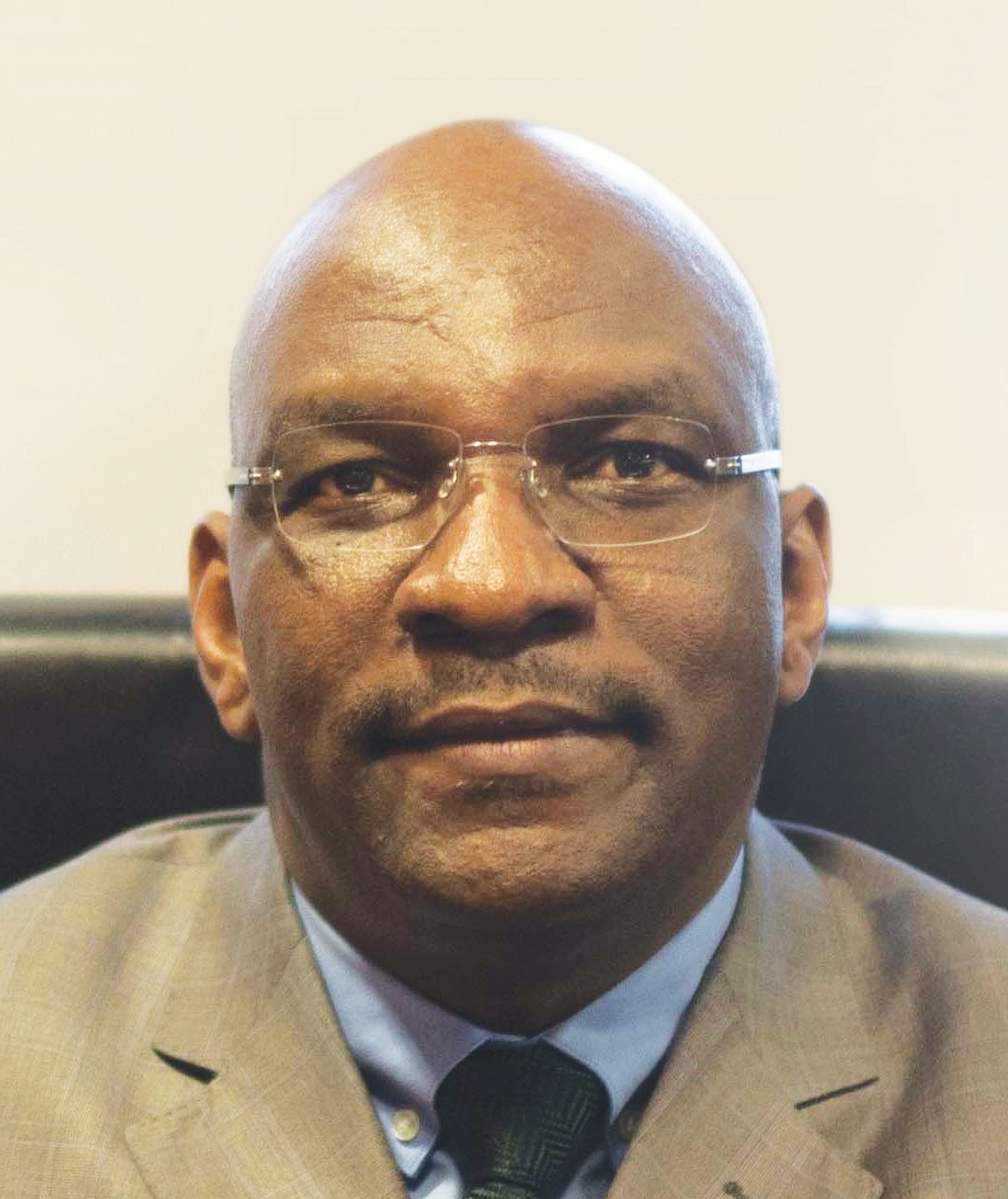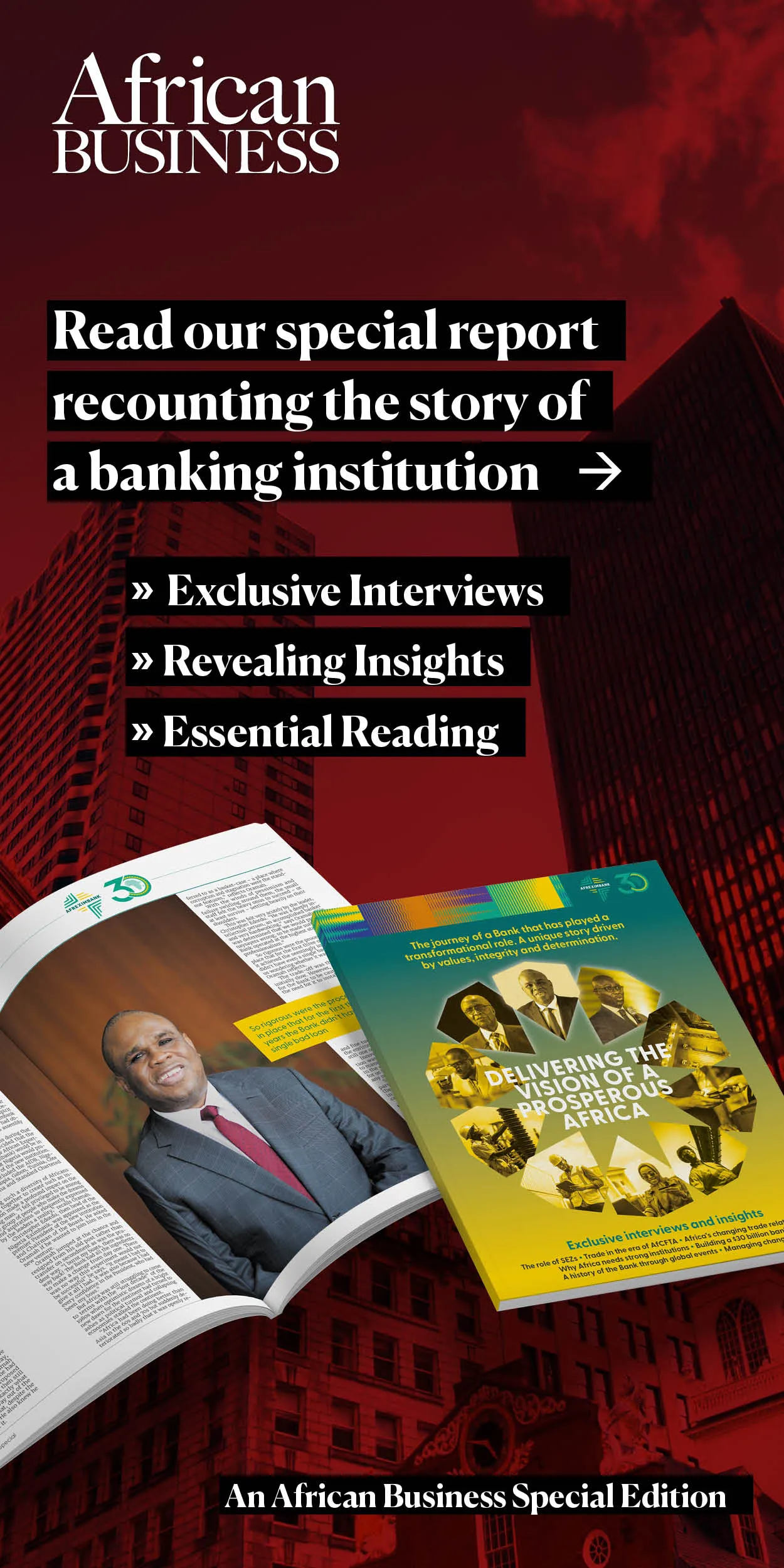This article was produced with the support of Afreximbank
When Denys Denya, now Executive Vice President with responsibility for Finance, Administration and Banking Services joined Afreximbank in April 2010, it was still a relatively lean operation with a staff strength of 66 that belied its expansive mandate and sprawling ambitions. At the time, the Bank was primarily focused on trade finance and short term facilities, which he says made managing the balance sheet a less challenging than it is now. The Bank was also present in only 33 of the 54 African countries and had only two branch offices in Abuja and Harare. However, all of this was about to change.
“There was a demand at the time to change the composition of trade on the continent, which meant that we needed to shift towards project financing and medium term financing. As a result we begun providing financial institutions with medium term lines of credit of between 12 to 36 months,” he recalls.
That meant the Bank needed longer term sources of financing to ensure sufficient liquidity in order to effectively serve its growing roster of clients. In response to this need, the Bank took several measures, including issuing bonds on the European capital markets, sourcing funds from Taiwan, Japan and China as well as establishing relationships with stakeholders such as export credit agencies and other development institutions. In 2014, the Bank decided to explore sources closer to home and began an Africa mobilisation drive, which proved immensely successful.
“In 2014, the first year of this initiative, we raised only about $75m from the continent. However, cumulatively, we have raised up to $34bn so far from African sources, making it the largest source of our funding. This funding has largely come from central banks, insurance companies, pension funds and the commercial banks themselves.”
These sources, along with bonds from international markets with tenures of up to 10 years, put the Bank in good position to handle its loan requirements which are in the region of $10bn annually.
Denys emphasises that Afreximbank has unique reasons to maintain more than adequate liquidity. “Unlike commercial banks, we do not have a lender of last resort, so we must always ensure that we have sufficient liquidity, regardless of whether we are in good or bad times.
He adds, “We are also not regulated by any external institution, so we made the decision to maintain a capital adequacy ratio of no less than 20%, which is significantly above the Basel requirements.” This is necessary, according to him, to give comfort to the bank’s stakeholders.
Achieving this, however, has required some creative maneuvers. “In 2017, we listed Depositary Receipts on the Stock Exchange of Mauritius to give us another avenue of raising additional capital as and when we needed it.”
The Bank has also needed to call up additional capital from its shareholders. In 2015, it raised about $500m this way. In 2020, following its pandemic interventions, the African Union suggested that the Bank conduct another round of General Capital Increase, which has so far yielded $1.4bn of the $2.6bn targeted by end of 2026. Denys expresses confidence that by the end of the planned period, December 2026, the target will have been achieved. “This would enable us to fund the growth of our manufacturing capacity, ensuring the production of vaccines in Africa, for instance. It will also help us finance the African Continental Free Trade Agreement.”
Strong governance procedures
The Bank’s growth has been complemented by robust governance procedures that Denys affirms are comparable to the highest standards in any region of the world. Assets are rigorously screened through a multi-step process that, above a certain threshold, involves the board of directors.
Similar procedures are also applied on the fund raising and liquidity management side, which Denys also oversees. To ensure absolute security, the Bank never stores funds in entities with a rating lower than ‘A’. Additionally, the Bank maintains liquidity ratios that are above the Basel requirements.
The Bank has also embraced technology to enhance its operations, aiming to improve efficiency and minimise the potential for error. “Despite being a $30bn bank, our staff compliment is not that high, hence we heavily rely on technology. We have a lot of processes that could be prone to human error so technology is important to us. “We use an AI enhanced system to streamline document management, simplying processes such as Documentary letters of credit and guarantees.When operating at our scale, avoiding mistakes is paramount.”
Inventive solutions
Over the years, Denys says Afreximbank has demonstrated its capacity to deal with challenges. The institutional approach has been to focus on solutions rather than dwelling on the problem or its magnitude, and devise inventive solutions.
For example, to maintain its high capital adequacy, the Bank took lessons from an instituition in Panama, where the idea of issuing Depository receipts on the Stock Exchange of Mauritius originated.
When in 2015, the commodities super cycle came to an end and some central banks were struggling to meet their obligations, the Bank introduced a programme that brought together its lending and central bank deposit functions, effectively resolving the challenges faced by customers and the Bank itself in one fell swoop.
Denys emphasises that these responses demonstrate the ethos that characterises the Bank’s activities. “When I look back, I can confidently say that every time we encountered a challenge, we rose to the occasion and delivered outstanding results. When the Russia/Ukraine crisis began, our Board approved a Ukraine Crisis Adjustment Trade Financing Programme for Africa (UKAFPA) to help mitigate the impact our member countries and our balance sheet actually grew by 37% in that period. The ability to adjust and help our clients is ingrained in our DNA now.”
According to Denys, leadership has been playing a pivotal role in Afreximbank’s success.. “We have been fortunate to have leaders like [former president] Jean-Louis Ekra, Christopher Edordu, the pioneer President, and Prof Benedict Oramah. Their philosophy was and is that we are masters of our own destiny, and we have to look for solutions for Africa ourselves because no one else will come and do that for us.
“So the things that we have done, such as being the first institution to enhance our callable capital, have come from this belief in ourselves and our capacity to solve problems ourselves.”
Going forward, Denya says the Bank will remain loyal to its mandate, delivering more products to help its clients navigating the diverse challenges of the modern global economy. “We are trying to build a one-stop-shop for anybody looking for trade, trade financing and enablement. We are trying to provide everything that we can to enable African entrepreneurs to succeed,” he says of the bank’s future plans.

 Sign in with Google
Sign in with Google 
